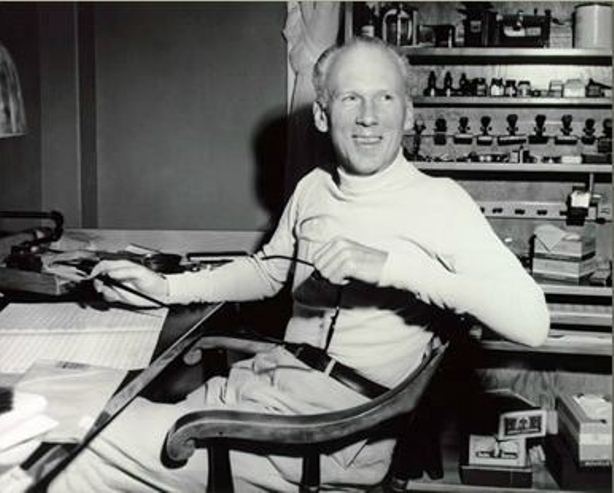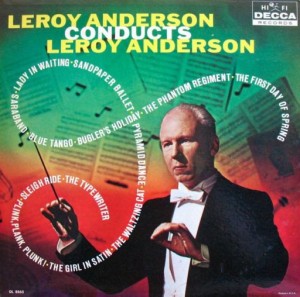Leroy Anderson, a long-time resident of Woodbury, was one of the most popular composers of light concert music in the 20th century. Though he served in the military, taught music theory, and served as a guest conductor for almost every major orchestra in the United States, Anderson is perhaps most famous for composing such popular instrumental hits as “The Syncopated Clock” and “Sleigh Ride.”
Born in Cambridge, Massachusetts, and the son of newly arrived Swedish immigrants, Anderson learned a love for music from his mother, a church organist, and his father, a postal clerk. After studying music and graduating magna cum laude from Harvard University in 1929, he pursued graduate studies in German and Scandinavian languages at Harvard while also teaching music theory at Radcliffe College. Soon after, he took a position as the director of the Harvard University band and caught the attention of Arthur Fiedler, conductor of the Boston Pops and an eventual life-long friend who premiered many of Anderson’s pieces.
Anderson put his music career on hold in 1942, utilizing his language skills as a translator and interpreter for the US Counter Intelligence Corps in Iceland during World War II. In all, Anderson spoke ten languages and his abilities subsequently earned him an assignment to work in the Pentagon in 1945.
After the war, Anderson spent the summer of 1946 in Woodbury where, during the course of an August heat wave, he wrote the winter holiday classic, “Sleigh Ride.” A couple of years later, he permanently relocated to Woodbury where he lived for the remainder of his life.
Number 1 on the Hit Parade
Anderson’s musical style combined light concert music with sound effects, producing such popular pieces as “The Typewriter” and “The Sandpaper Ballet.” In the 1950s, CBS-TV chose his “The Syncopated Clock” as the theme for The Late Show, and in 1952, Anderson’s “Blue Tango” became the first instrumental to reach number 1 in the Hit Parade—remaining on top for 7 weeks and selling over 2 million copies.
Leroy Anderson spent the remaining years of his life guest conducting orchestras throughout the United States and serving on the boards of the New Haven and Hartford symphonies. In addition, he served as acting manager for the Waterbury Symphony Orchestra before passing away in 1975 at the age of 66.










